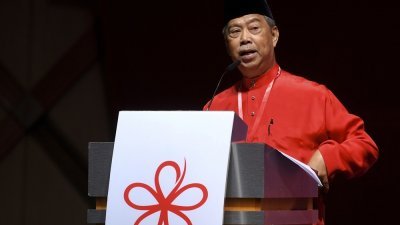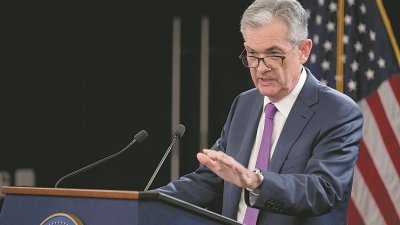陈德顺这个名字,对于马来西亚大多数华人而言,可说非常陌生,但他却是马来亚殖民时期的重要人物,在华文教育和政治领域中扮演著重要角色。受过教育和善用社交媒体的年轻一代华人,如果还有极少数能对陈德顺这个名字有所认识,或者能追述陈德顺对马来西亚华人的贡献,那都是令人惊讶的事。
为了填补本区域学术和政治历史上的这一缺失,学者克里斯汀多兰(Christine Doran)在2006年于新加坡学术期刊上这样描述陈德顺:
陈德顺是一位颇具影响力的华人学者,他在20世纪之交为新加坡华人社会革新运动做出了贡献。本文探讨重点在于陈德顺的贡献重要性,这是历史学家相对忽视的。本文考察了陈德顺的政治思想本质,并对其两篇重要文章进行了详细分析,这些文章是他政治发展的标志。这两篇文章展现了陈德顺思想中进步观念的重要性,并描绘了他在20世纪头十年政治思想的激进化。(参见。Christine Doran,闪耀之星:陈德顺政治思想变迁https://www.jstor.org/stable/41308064)
那些对早期华人知识分子和社运人士如何改变马来西亚政治和知识界发展感兴趣者,以下为更多关于陈德顺讯息。
陈德顺于1859年出生在新加坡,在莱佛士书院接受教育,他的学术才华让他在14岁时获得了享有盛誉的牙直利(Guthrie)奖学金。可是,他没有如一般获奖学金者首选英国为深造目的地,反之他选择了到中国。
从中国深造回来后,他成为了报导中国新闻的报纸《广告人日报》的编辑和经营者。他也是新加坡华文教育学院的教育家,这是一家推广成人教育的机构;《闪耀之星》里的人物陈德顺;经常为英文季刊《海峡华人杂志》撰稿,随后担任中文报纸《天南新报》的经理。在他一生的大部分时间里,他都是一位耕耘不断的作家、社会评论员,也是马来西亚和中国的华人思想家。
倡导改革
以下为陈德顺作为知识分子和激进改革者的几个面向。
首先,在那个时代,他相信现代科学、医学、技术和教育的重要性,并倡导将这些知识应用于中国和马来亚殖民地。
其次,他参与了新加坡公共领域的发展,其影响扩展到了马来亚其他地区。他与知名的林文庆博士联手,为本地英文、马来文和中文印刷媒体做出了贡献,他也在构建新知识社会过程中发挥了积极作用。这两位伟大的人物,连同一小群受过教育的海峡华人,是流散民族主义先驱和中华文化意识载体,这是他们与西方和殖民主义的区别。这也是马来亚意识的起点。
尽管陈德顺的主要学术兴趣集中在文化和教育问题上,但他也非常出色地表达了海峡华人精英不仅在教育和社会成就上,而且在商业上与英国人不相上下的观点。在陈德顺于由欧洲人官员和私人领域巨头组成的海峡哲学协会中发表的一篇论文中,他向英国人强调了华人对马来亚的经济贡献。
陈德顺指出,在英国还不愿插手马来联邦事务时,华人冒著风险和没有英国政府护航下,积极到这些马来州属土地上发展,并促进内陆的贸易。
陈德顺在海峡哲学协会发表的另一篇论文谈及新加坡的教育问题。这篇论文的主题是他对海峡华人社会改革和半岛各社群面临的教育挑战的立场。值得注意的是,陈德顺也批评了欧洲人在殖民地的至高地位以及他们对一般民众缺乏关注。他进一步抨击英国在殖民地的治理,他认为欧洲人生活在一个与殖民地其他民众分离的世界中,并且只是“微弱且间歇性地尝试”来理解和改革其他族群社会。
但陈德顺也意识到马来亚缺乏一种社会身份的认同,而“多元社会”的现实使这种意识变得更加迫切。当年,陈德顺的批评,依然适用于当下的情境,他指出,“除了对金钱的强烈追求外,每个(族群)都过著自己的生活,对他人的存在或接触漠不关心”。陈德顺对多元社会的观点,可说预见了东南亚多元主义学者傅乃华(Furnivall)常被引用来对爪哇和缅甸殖民统治下“多元社会”的描述,即欧洲人、华人和土著,每个人都局限在自己的宗教、文化和语言中,只在市集里才有交集。
反击西方刻板印象
最后,也许与当今世界形势最相关的是,陈德顺反对西方对中国和中国文明的刻板印象论述。他那个时代的中国四分五裂,民族撕裂,被视为停滞不前,科技落后国家。因此,中国正处于被西方列强,美国和日本瓜分的处境。
陈德顺不认同西方对中国的看法,他认为中华文明不仅是进步的,而且是灵活和兼容。他指出中国思想家能够融合不同的思想流派,如道教、儒教和佛教,进而反驳了中国是锁国、停滞和故步自封的迷思。
正如学者克里斯汀多兰(Christine Doran)所说,陈德顺的事迹核心是“以进步的眼光,照亮中国和海外的华人。因此,陈德顺在概念上与西方盛行的观念形成了对立,即中国缺乏历史,其历史发展早已停止。”
令人感兴趣的是,陈德顺会如何看待当下马来西亚华人地位和中国的处境。
林德宜《陈德顺:马来西亚华人知识分子典范》原文:《Tan Teck Soon: Icon Among Malaysia’s Chinese Intellectual Activists 》
The name of Tan Teck Soon is probably unfamiliar to the great majority of Chinese in Malaysia although he was an important figure in colonial Malaya and played a key role in Chinese education and political culture. It will be very surprising if the name will be recognized by more than a very small number of the young generation educated and social media savvy Chinese today or if they can recall his contribution to the Chinese in Malaysia.
To correct this lacunae in the region’s intellectual and political history, Christine Doran described him in a Singapore academic journal in 2006 in the following way:
Tan Teck Soon was an influential Chinese scholar who contributed to the reformist impulse within the Chinese community in Singapore around the turn of the 20th century. This article calls attention to the importance of Tan's work, which has been comparatively neglected by historians. It examines the nature of Tan's political thought and provides a detailed analysis of two significant articles which were markers of his political development. The article emphasises the salience of concepts of progress in Tan's thinking, and charts the radicalization of his political ideas during the first decade of the 20th century. (See. Bright Celestial: Progress in the Political Thought of Tan Teck Soon by Christine Doran, https://www.jstor.org/stable/41308064)
Here is more information on him for those who are interested in Chinese intellectuals and activists who have made a difference to the political and intellectual development of Malaysia.
Tan Teck Soon was educated at Raffles Institution and his academic brilliance won him the prestigious Guthrie scholarship at the age of 14. Turning down the choice to study in Britain which was the preferred destination for other winners, he chose to study in China. In the years after his return, he became the editor and proprietor of the Daily Advertiser, a newspaper which covered news from mainland China. He was also an educator through the Singapore Chinese Educational Institute, an institute for adult education; the author of Bright Celestials; frequent contributor to the Straits Chinese Magazine and subsequently the manager of the Chinese-language newspaper Thien Nan Shin Pao. For most of his life he was an indefatigable writer, social commentator and original thinker on the Chinese in Malaysia and in China.
Several features of his career as intellectual and activist reformer can be discerned.
The first was his belief in the importance of modern science, medicine, technology and education during his time and his advocacy for its application in China and colonial Malaya.
The second was his participation in the development of a public sphere in Singapore whose impact extended to the rest of Malaya. Together with the better known Dr. Lim Boon Keng, he contributed to print media in English, Malay and Chinese, as well as through his active role in the formation of new intellectual societies. The two towering figures, together with a small group of Straits Chinese educated, were pioneers of a diasporic nationalism and a cultural sense of Chineseness which provided a basis for differentiating themselves from Western and colonial thought. It was also the starting point of a Malayan consciousness.
Although Tan’s main intellectual interests were focused on cultural and educational concerns, he was also outstanding in voicing the opinion that the Straits Chinese elite was more than a match for the British not only in educational and social achievement but also in business. In one paper he provided to the Straits Philosophical Society which comprised the creme de la creme of European official and private sector leaders, he emphasised to his English audience the economic contribution the Chinese had made to Malaya. The Chinese, Tan argued, had developed the land of the Malay States at a time when the British had avoided intervention and had worked to facilitate trade into the interior, often in precarious circumstances and without government protection.
Another paper to the Society touched on educational problems in Singapore. Key in the paper was his stand on social reform amongst the Straits Chinese and the educational challenges faced by the various communities of the Peninsula. Also noteworthy was his critique of the supreme position of the Europeans in the colony and their lack of concern for the peoples of the settlement. Furthering his earlier critiques of British governance in the colony, he argued that the Europeans lived in a world separated from the other members of the colony and made only “feeble and spasmodic attempts” to understand and reform the other communities.
But he also recognized that what was lacking in Malaya was a sense of community, made more acute by the reality of the “plural society”. In his critique which can be seen to apply to the situation today, he noted that “except as regards the strenuous pursuit of dollars, each [community] leads a life of his own entirely indifferent to the existence or proximity of the other”. Tan’s opinion about the plural society may be seen to anticipate Furnivall’s much quoted depiction of the “plural society” of colonial Java and Burma, in which Europeans, Chinese and natives, each contained within their own religion, culture and language, met only in the marketplace.
Finally, and perhaps most relevant to the situation in the world today was his argument against western stereotyping of the Chinese and China’s civilization. The China of his time was fragmented, lacked national unity and was perceived as stagnant and technically backward. Hence it was in the process of being divided up by western powers, the United States and Japan.
Rejecting western views of China, Tan argued that Chinese civilization was not only progressive but also flexible and tolerant. Noting the ability of Chinese thinkers to mix different schools of thought, such as Taoism, Confucianism and Buddhism, he also challenged the myth of Chinese insularity, stagnation and resistance to progress.
The central thrust of all of Tan’s work as noted by Christine Doran was “to highlight the Chinese both in China and overseas, in a progressive light. Thus Tan Teck Soon fashioned a conceptual counter to prevailing Western notions that China lacked a history and that its historical development had ceased long ago.”
It would be interesting to know what would be the reaction of Tan Teck Soon to the position of the Chinese in Malaysia and China’s position in the world today.
要看最快最熱資訊,請來Follow我們 《東方日報》WhatsApp Channel.


















